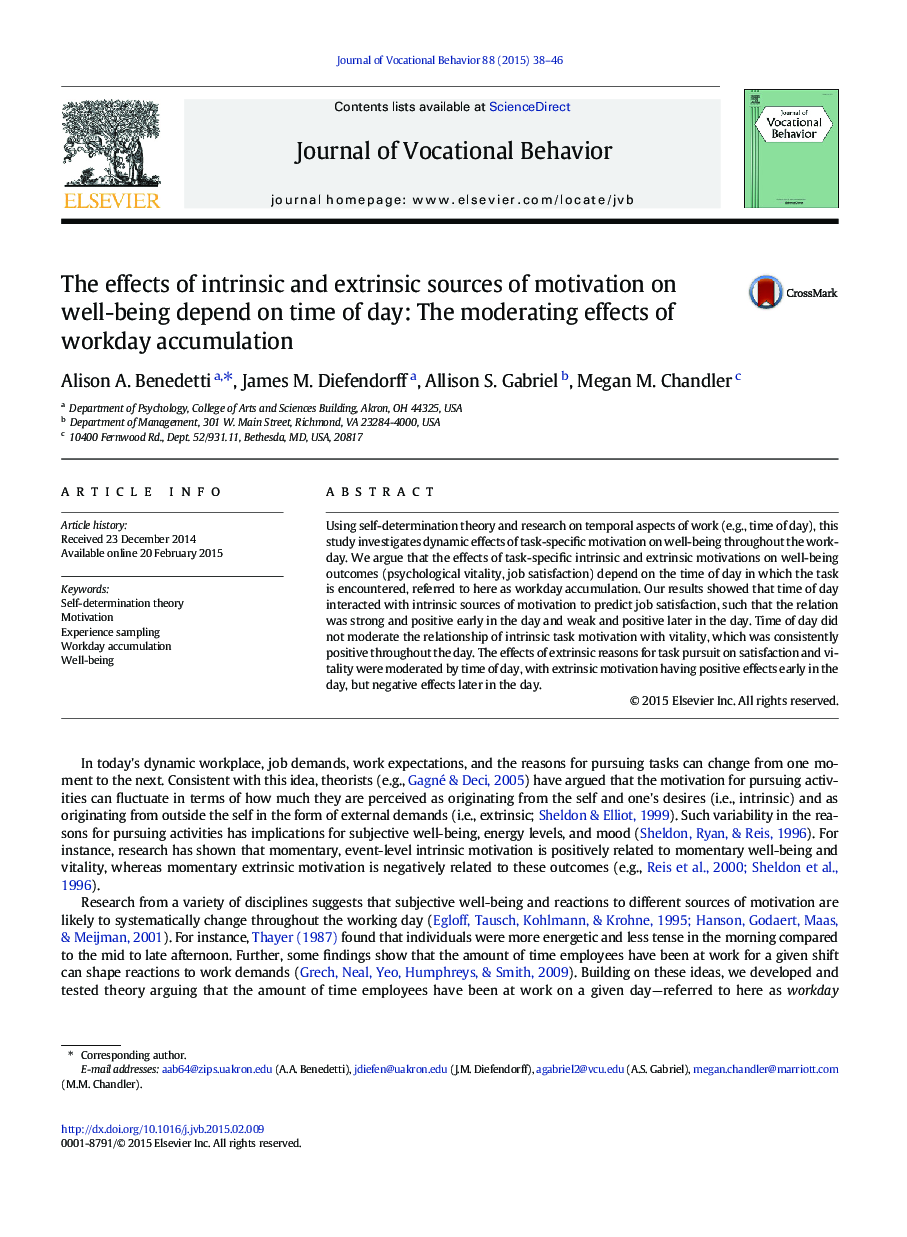| Article ID | Journal | Published Year | Pages | File Type |
|---|---|---|---|---|
| 886757 | Journal of Vocational Behavior | 2015 | 9 Pages |
•We examine within-day changes in reasons for task pursuit and effects on well-being.•Time of day is a proxy for workday accumulation--the amount of work demands encountered.•Effects of extrinsic pursuit on well-being are positive early and negative later.•Effects of intrinsic pursuit on satisfaction are stronger early and weaker later.
Using self-determination theory and research on temporal aspects of work (e.g., time of day), this study investigates dynamic effects of task-specific motivation on well-being throughout the workday. We argue that the effects of task-specific intrinsic and extrinsic motivations on well-being outcomes (psychological vitality, job satisfaction) depend on the time of day in which the task is encountered, referred to here as workday accumulation. Our results showed that time of day interacted with intrinsic sources of motivation to predict job satisfaction, such that the relation was strong and positive early in the day and weak and positive later in the day. Time of day did not moderate the relationship of intrinsic task motivation with vitality, which was consistently positive throughout the day. The effects of extrinsic reasons for task pursuit on satisfaction and vitality were moderated by time of day, with extrinsic motivation having positive effects early in the day, but negative effects later in the day.
